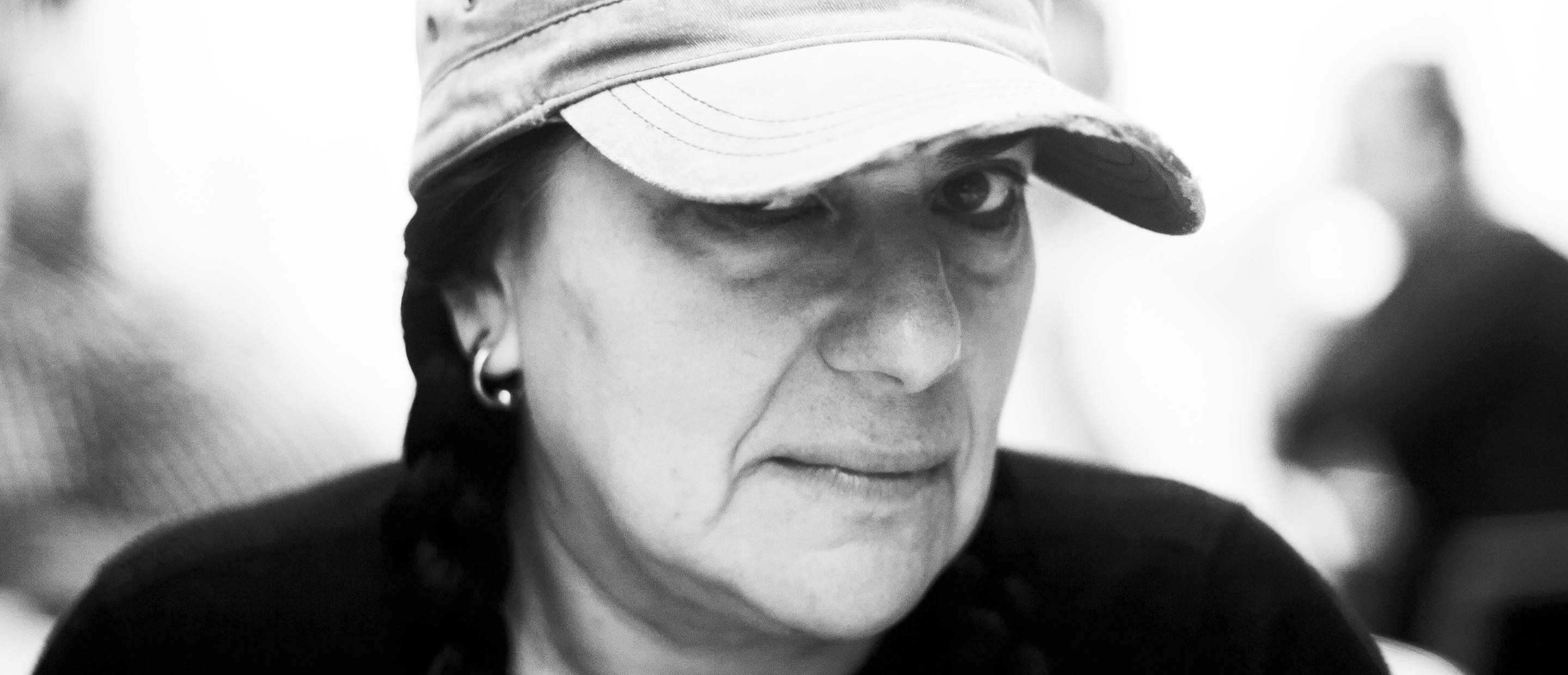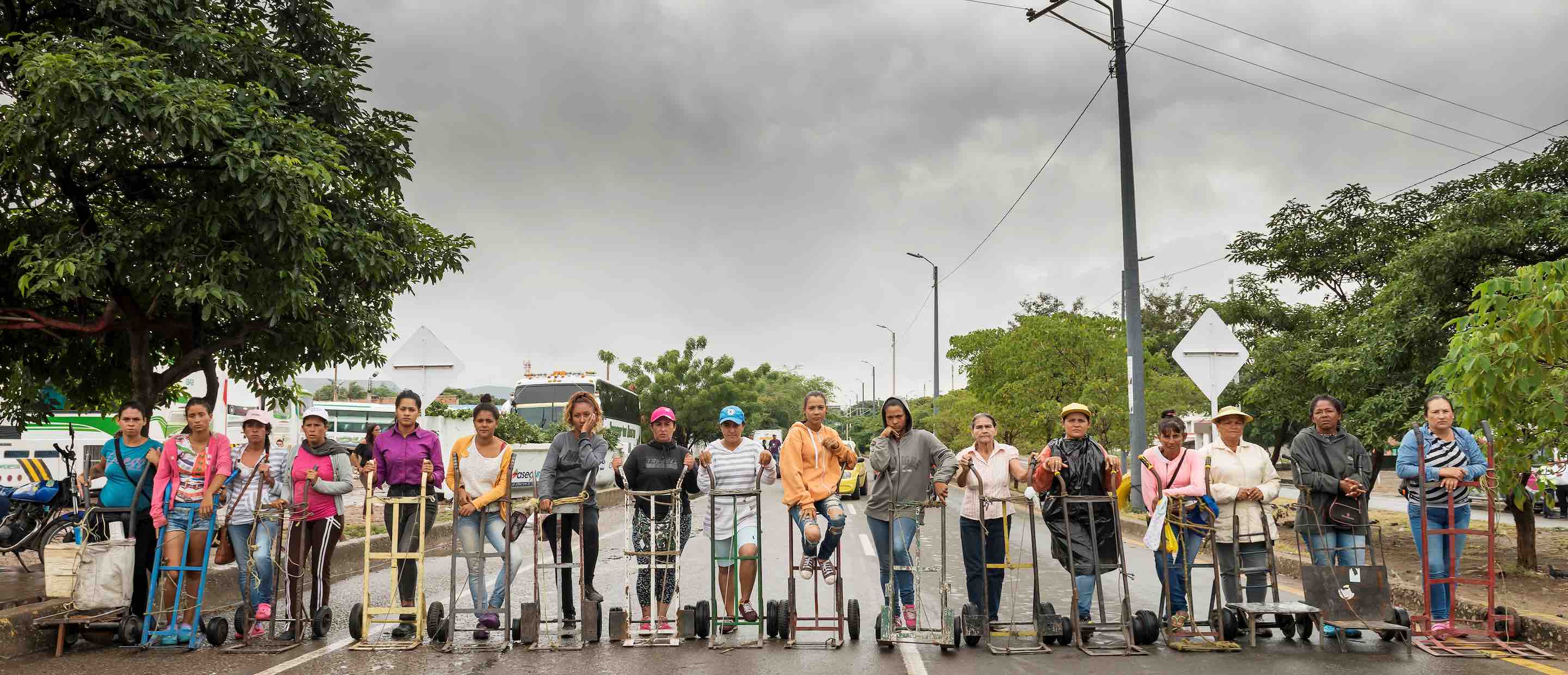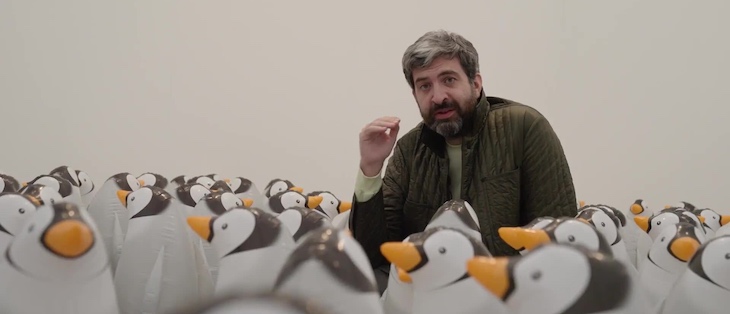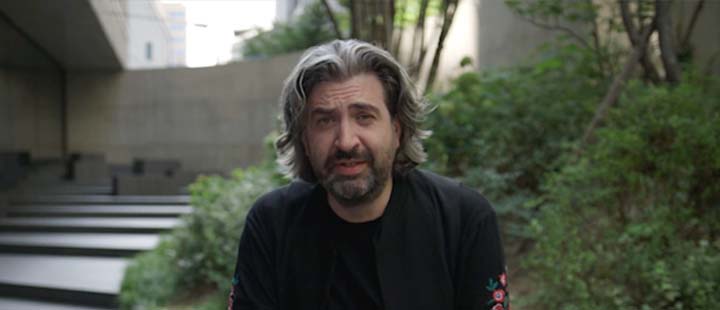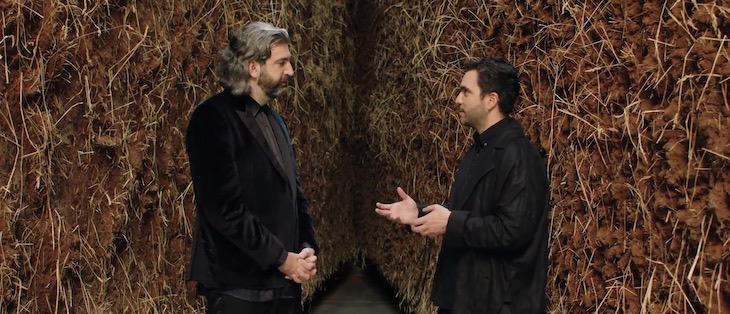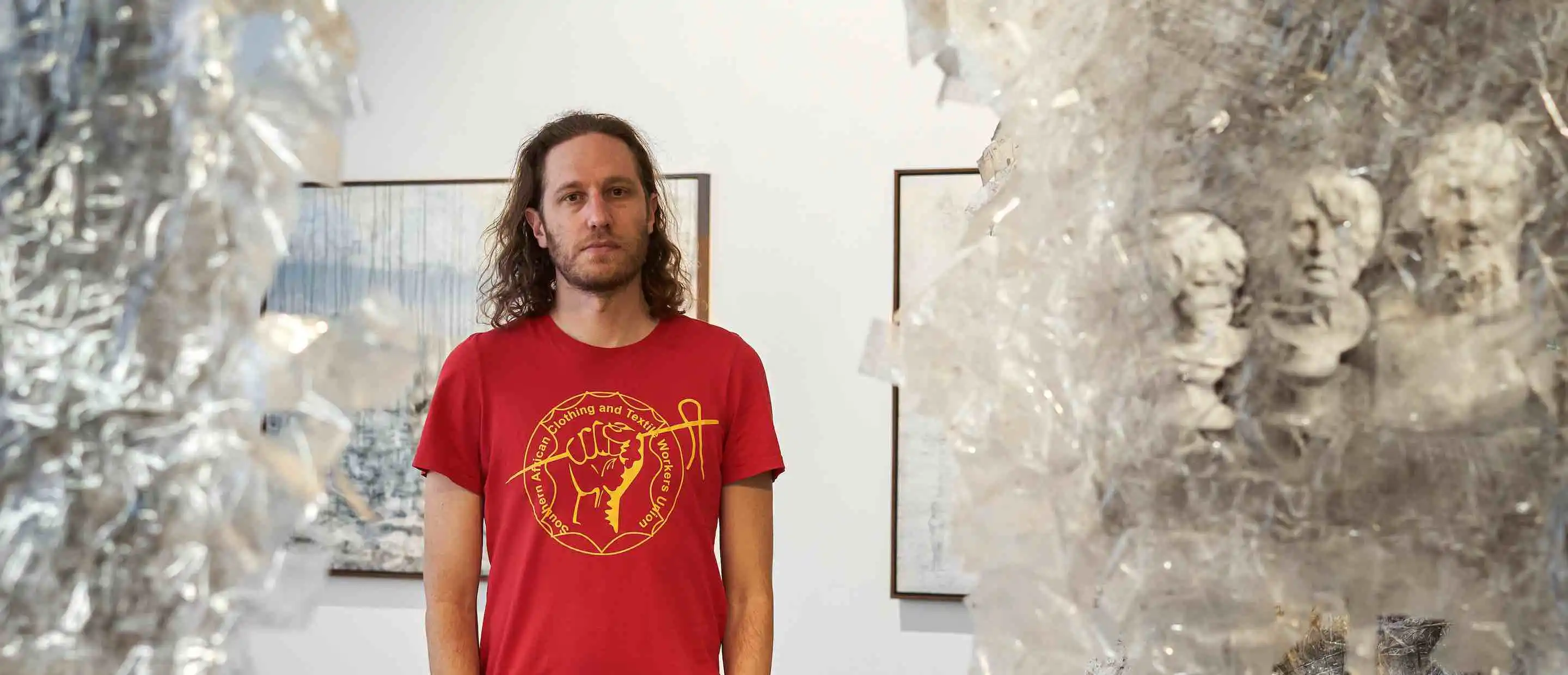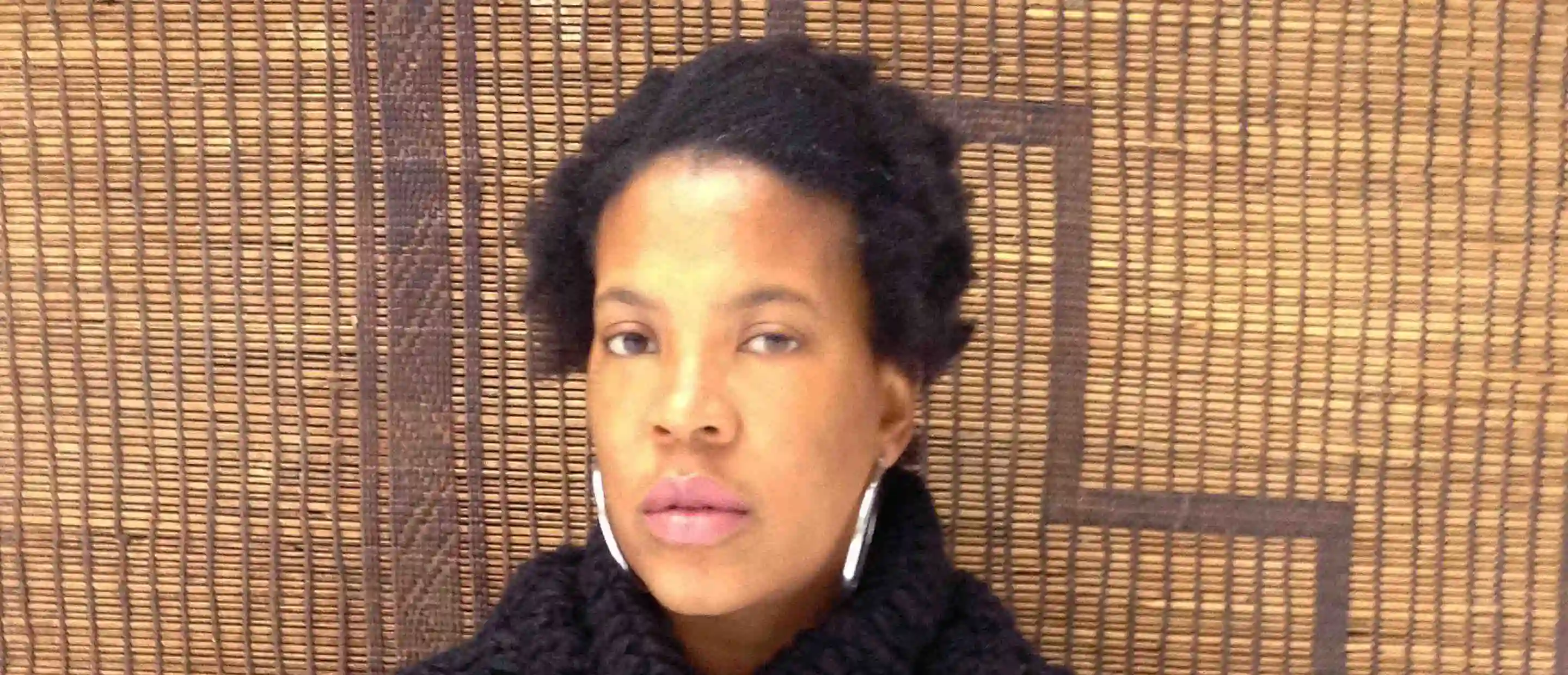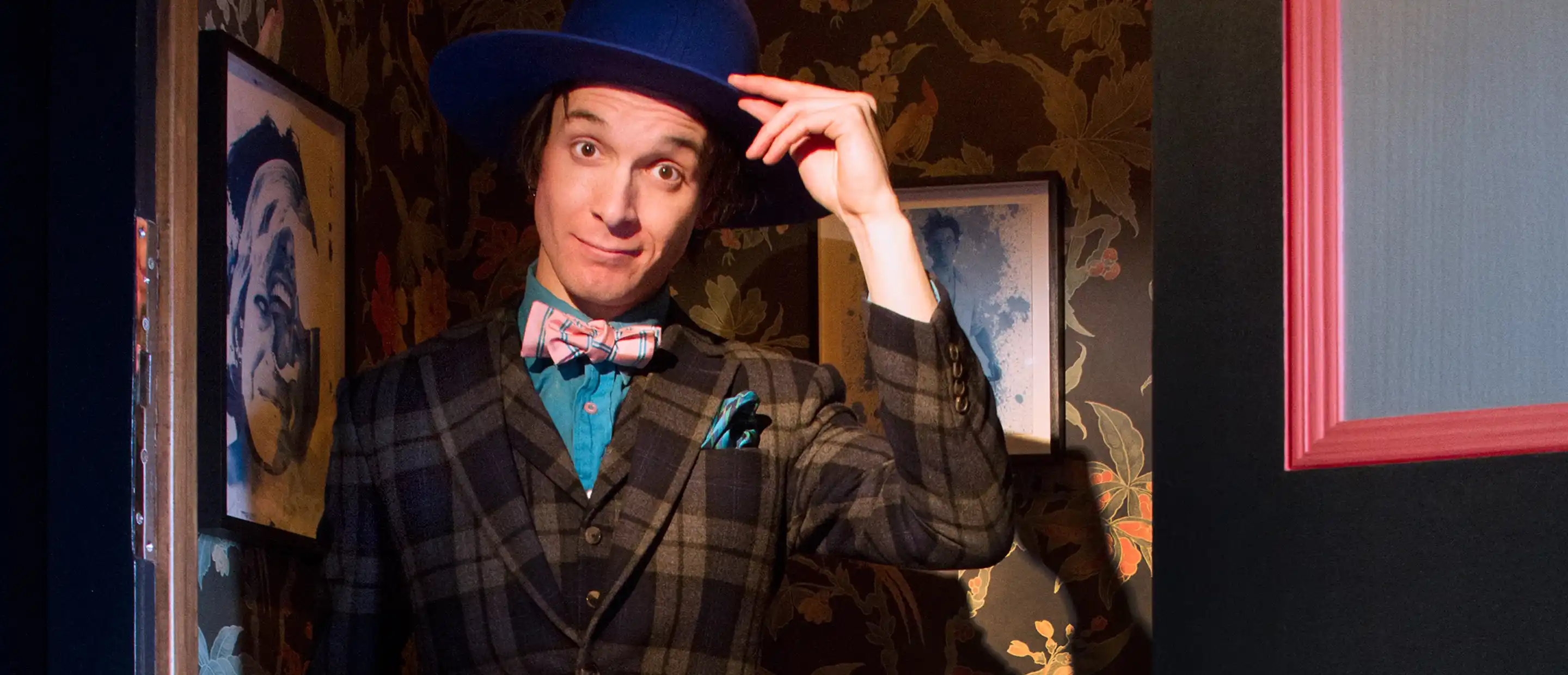Born in Culiacán, Mexico in 1963, Teresa Margolles has always been intensely concerned with death – specifically with people who die as a result of poverty, violence, drugs and crime.
Trained as a photographer and forensic pathologist, she has worked in Mexico City's morgues, using water and linen cloths to clean and store corpses in her installations. Margolles is also an activist. Her often very physical and drastic works demand justice and collective memory for the marginalised victims of everyday violence in Mexico, which primarily affects women.
In 2017, Margolles visited Cúcuta, Colombia, where the Táchira River traces the country's border with Venezuela. Due to the extremely difficult economic and political situation in Venezuela, the region has become a smuggling zone for Venezuelans to obtain basic goods that are currently scarce in their country. "Carretilleros” [handcart porters] who have become "trocheras" [illegal trail guides], smuggle goods under the bridge across the border at great risk. In the dark, the women have to carry enormous loads, up to 60 kilograms on their backs. For "Carretilleras sobre el puente internacional Simón Bolivar," Teresa Margolles invited these women to pose on the bridge with their work tool, the wheelbarrow, to become visible and demonstrate their resilience.
Creating a fading monument for London’s Trafalgar Square
Margolles's solidarity also includes trans women. In 2024, she will create a sculpture for Trafalgar Square in London as part of the prestigious "Fourth Plinth" project. She has proposed a work that highlights the number of murders of trans people around the world. She sees her sculpture, with plaster casts of the faces of 850 trans people, most of whom are involved in sex work, as a "wall of resistance. Over time, the faces will weather and fade with the London weather, leaving behind "a kind of anti-monument," Margolles says.
About this article series
This article forms part of a special series celebrating Deutsche Bank’s 20 years as Global Lead Partner of Frieze art fairs, taking a closer look at one of 20 artists we have collaborated with and whose work features in the Deutsche Bank Collection.
Deutsche Bank's commitment to art and culture
Deutsche Bank is the Global Lead Partner for Frieze art fairs, with 2023 marking the 20th year of the partnership. As part of its Art & Culture commitment, Deutsche Bank has supported and collected the work of cutting-edge, international artists for more than 40 years. A global leader in corporate art programmes, the bank also runs an Artist of the Year programme, as well as its own cultural centre in Berlin, the PalaisPopulaire. All initiatives are based on the strong belief that engagement with art has a positive impact, not only on clients and staff but also on the communities in which the bank operates. Thus further collaborations such as the Deutsche Bank Frieze Los Angeles Film Award in the United States, The Art of Conversation in Italy, the Frieze x Deutsche Bank Emerging Curators Fellowship in the United Kingdom, and the digital platform Art:LIVE, create access to contemporary art for people all around the world. Discover more here.
Please find more information on Deutsche Bank’s art programme at db.com/art and follow us on Instagram @deutschebankart
Main image: Portrait Teresa Margolles, Courtesy © Rafael Burillo.
Developed by
Deutsche Bank Art & Culture
